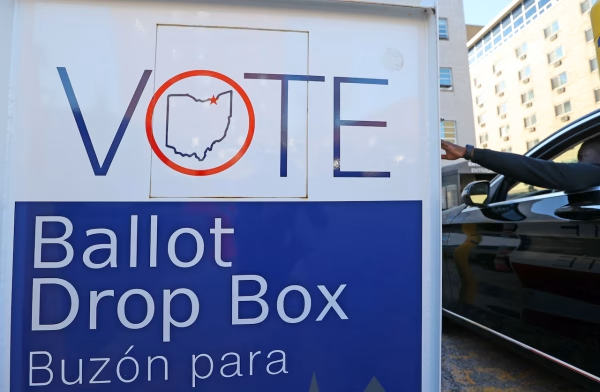(Originally posted on HuffingtonPost.)
We are on the eve of one of the most important presidential elections in history and turnout is expected to reach record highs. That’s the good news. The bad news is that there are far too many barriers blocking millions of Americans from exercising the right to vote, one of our most fundamental and precious rights. The last thing this country needs right now is another election that leaves us uncertain of its legitimacy. Unfortunately, there are enough shenanigans going on right now that there is serious reason to be concerned.
In Michigan, two statewide voter purge programs could potentially disenfranchise hundreds of thousands of voters in advance of next month’s election.
Under one voter removal program, the Michigan Department of State, which administers both driver's license and voter registration records, immediately cancels the voter registrations of voters who obtain driver's licenses in other states instead of issuing the appropriate confirmation of registration notices and following the required voter removal procedures mandated by the National Voter Registration Act of 1993 (NVRA). According to the Department's own figures, over 280,000 voters per year are removed from the rolls in this manner.
Under the second voter removal program, a Michigan state law requires local clerks to cancel the registrations of newly-registered voters whenever their original voter identification cards are returned by the post office as undeliverable. Detroit elections officials report that nearly 30,000 voters per year in that city alone are removed from the rolls as a result of this election law, which violates the NVRA and other federal and state laws.
The ACLU — along with the Advancement Project — fought these programs in court to protect the integrity of this year’s election. And just yesterday, a federal judge found both programs to be illegal. The judge ordered state officials to restore the names of 1,438 people who have been unlawfully purged from the rolls this year.
Felony disenfranchisement is another obstacle blocking millions of Americans’ access to the polls. For these people, their voting rights have been revoked for periods ranging from the time spent incarcerated to a lifetime. Yes, in 11 states, you can lose your right to vote for life. In many other states, partisan election officials are denying formerly incarcerated people the right to vote in direct violation of the law.
Alabama denies voting rights to individuals who have been convicted of felonies involving "moral turpitude," even though the state constitution does not define which felonies fall into this ambiguous and antiquated category. Thousands of Alabamians are disenfranchised under a much broader category of convictions than is permissible under the Constitution, relying in part on an unlawful opinion issued by the state attorney general.
Although the Mississippi Constitution permits people who have been convicted of a crime to vote for president and vice president, election administrators are denying that right in practice. In that state, there is a de facto blanket disenfranchisement of all people with felony convictions.
And in Arizona and Tennessee, the restoration of voting rights for people convicted of crimes is contingent on the payment of all outstanding legal financial obligations, including restitution and child support fees. The effect of these laws is nothing more than a modern-day poll tax that requires people to pay fees before they are eligible to vote.
Through litigation, the ACLU is actively challenging felony disenfranchisement in all of these states, as well as other infringements upon voting rights. In fact, just last week we won a major victory in Ohio, when two courts sided with us and upheld a weeklong period in which new voters can register and cast an absentee ballot on the same day.
If the 2004 election is any indicator, we can expect many more voter suppression tactics to pop up between now and Election Day — things like voter intimidation masquerading as “poll watching,” misleading campaigns providing false election information, malfunctioning voting machines, unfounded accusations of fraud and many, many more.
The right to vote is protected by more constitutional amendments than any other right we have — the 1st, 14th, 15th, 19th, 24th and 26th. The Supreme Court has repeatedly declared that the right to vote is protective of all rights. Yet, in practice, that precious right is too often trampled upon. From voter purges to felony disenfranchisement to unreliable technology, the concerted effort to suppress voting in this country is completely at odds with our democratic principles and downright un-American.
For more information on the ACLU’s work to protect voting rights, go to www.aclu.org/voting-rights.


